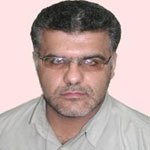Jurisprudential Study about the Sale of Dead Human Organs
According to verses and hadiths, buying and selling impure objects is prohibited. Among these impure objects are the isolated organ of the living human body and the organs of the dead body. This article seeks to investigate the buying and selling (sale) of dead human organs in cases of rational purpose.
This article is a descriptive-analytical one.
Ethical Considerations All ethical considerations in writing this article have been observed.
By examining these texts, it was concluded that the reason for the prohibition of buying and selling dead organs was the inherent unclean body, its lack of financiality, and the type of its use in the past. Because some people used these organs to eat, therefore, it was forbidden to buy and sell organs for this purpose. Many Imami jurists have given a fatwa on the sanctity of buying and selling dead and living human organs. Nowadays, by change of the time and place and change in use of organs, which is for medical affairs, the goal is to save another human life. Therefore, the sale of organs will be expedient. Therefore, some jurists have proposed the theory of heba or organ gifts and by this contract, they have allowed the donation of human organs (living or dead).
It is permissible to buy and sell the human dead organs based on rationality and the rule of elimination of losses.
-
Islamic Jurisprudence Strategy on Taqῑyya (Dissimulation) in Islamic International Relations
Alireza Moradi, Aliakbar Ezadifard *,
Journal of Comparative Studies on the Schools of Jurisprudence and its Principles, -
A Fiqhi and Legal Examination of Endowments (Waqf) in the Northern Forests of Iran
*, Hormoz Abbasi Firouzjah, Rahman Valizadeh
Journal of comparative jurisprudence and law research,


